Les publications
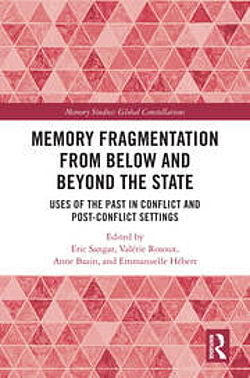
Understanding the Fragmentation of the Memory of the Allied Bombings of World War Ii. The Role of the United States Strategic Bombing Survey.
25 septembre 2023Mathias Delori
CNRS associate research professor (chargé de recherche CNRS)
Centre Emile Durkheim de Bordeaux / Centre Marc Bloch de Berlin
Last publication: Delori, Mathias. "Understanding the Fragmentation of the Memory of the Allied Bombings of World War Ii. The Role of the United States Strategic Bombing Survey." In Memory Fragmentation from Below and Beyond the State: Uses of the Past in Conflict and Post-Conflict Settings, edited by Anne Bazin, Emmanuelle Hébert, Valérie Rosoux and Eric Sangar: Routledge, 2023.
Website: www.MathiasDelori.com (with links to most publications)
Die jüdische Remigration in die SBZ/DDR." Ein Anderes Land. Jüdisch in der DDR
25 septembre 2023 Edition: Chr. Links Verlag/Jüdisches Museum Berlin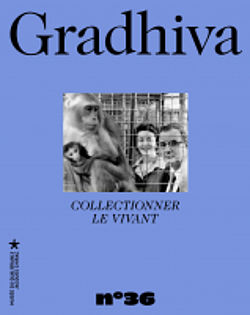
Collectionner le vivant
25 septembre 2023
Mathilde Gallay-Keller, Serge Reubi et Mélanie Roustan
ISBN: 978-2-35744-155-2
À l’heure de la crise de biodiversité, entre inventaire du vivant, domestication du sauvage et conservatoire de la vie, les collections vivantes des jardins, musées et laboratoires, qui incarnaient la mainmise des humains sur la nature (colonisée) cristallisent aujourd’hui leur vulnérabilité dans une dialectique du maître et de l’esclave revisitée.
Ni images ni objets, les animaux, plantes ou micro-organismes collectionnés vivants échappent aux catégories classiques de la science et du patrimoine. Ces spécimens, aussi signifiants ou évocateurs soient-ils, et bien que souvent échantillonnés sur des critères de représentativité, collectés, classés ou montrés pour représenter une espèce ou une idée, n’en demeurent pas moins des êtres vivants bien réels – séparés de leur milieu, étiquetés, classés, étudiés, contraints, exposés.
Dans la collection du vivant, s’ajoute à l’enjeu épistémologique de la bonne échelle de collecte (le fragment, le spécimen, l’ensemble...) et des limites de l’interprétation muséologique, celui de l’arrachement à un territoire et de la spoliation d’une communauté. En miroir se dessine le problème de ce qui reste, de ce qui manque, de l’écosystème appauvri ou du groupe social dépossédé – et de ce qui revient lorsque l’on entend restituer, réintroduire, réensemencer ou revitaliser.
Muet mais animé, le vivant renouvelle ainsi les questions éthiques et politiques posées par toute mise en collection : celle de l’autorité et de l’appropriation, celle de la réification et celle de l’(im)permanence des choses.
Quand il n’y a plus de concerts... Les musiciens de l’ensemble Orpheus XXI (Jordi Savall) en temps de pandémie
25 septembre 2023 ISBN: ISSN: 2284-0176Abstract
EtnoAntropologia, 11 (1) 2023 - ISSN: 2284-0176Abstract1In the context of the pandemic, the absence of a concert serves as a heuristic tool to see what mi-grant musicians of the orchestra Orpheus XXI (Jordi Savall) in France and Germany do during this time. The lack of concerts impacts their economic income, their daily and family lives, and reduce the practice of their profession as musicians; they develop strategies to compensate this lack. The pandemic also exposes and reinforces inequalities in economic and professional status between musicians.
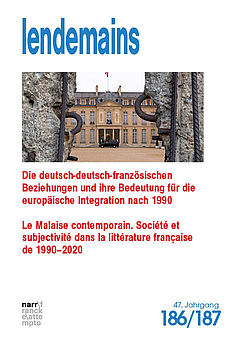
Lendemains - Études comparées sur la France 47
25 septembre 2023Die deutsch-deutsch-französischen Beziehungen und ihre Bedeutung für die europäische Integration nach 1990 | Le Malaise contemporain. Société et subjectivité dans la littérature française de 1990–2020
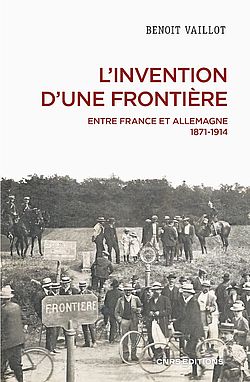
L’invention d’une frontière Entre France et Allemagne, 1871-1914
07 septembre 2023 ISBN: EAN : 9782271145642Avec la défaite française de 1871, la frontière séparant la France de l’Allemagne se voit déplacée du Rhin aux Vosges.
La quasi-totalité de l’Alsace, une partie de la Lorraine, et plus d’un million et demi de personnes passent sous le drapeau du Reich. Pendant près d’un demi-siècle, la vie quotidienne des populations, devenues frontalières, s’en trouve métamorphosée.
C’est l’analyse du rapport concret des habitants à cette nouvelle ligne qui intéresse Benoit Vaillot. Comment la franchissent-ils, la contournent-ils, et s’en accommodent-ils ? De quelle manière en tirent-ils parti ou, au contraire, s’en désolent-ils ? Quelles sont leurs façons de la penser, de l’appréhender et de l’incorporer dans leur vie ?
L’expérience de la frontière est étudiée à travers une pluralité d’objets : le contrôle des personnes, des animaux et des marchandises ; le braconnage, la contrebande et l’espionnage ; les stratégies de nationalité des habitants ; les pratiques sportives et touristiques ; ou encore les nouveaux défis posés par les premières pandémies mondiales, et le développement de l’automobile et de l’aéronautique. On découvre que c’est autour de cette frontière qu’a été inventée la notion d’espace aérien national et qu’ont été installés systématiquement, et pour la première fois, des poteaux-frontières et des barrières. Mais on lui doit aussi le ravage actuel des forêts d’Alsace et de Lorraine par le scolyte, un insecte particulièrement friand des épicéas et des pins, que les gardes forestiers allemands ont favorisé à la fin du XIXe siècle.
La frontière franco-allemande entre 1871 et 1914 a constitué un véritable laboratoire. À bien des égards, elle porte en elle les germes des profondes transformations que connaîtront la souveraineté et l’identité nationale en Europe au cours du XXe siècle.
The fall of a city: Refugees, exodus and exile in Ernest Hemingway’s Istanbul, 1922
07 août 2023 ArtikelEdition: Journal of European Studies
Ernest Hemingway arrived in Istanbul on 30 September 1922 to cover the end of the Greek–Turkish War for the Toronto Star. From late October to mid-November 1922, Hemingway wrote 20 articles about the last days of the war and the re-constellation of political legitimacy in the region. There are four distinguishing features of Hemingway’s reports from Constantinople. First, they provided an eloquent depiction of the city, suggesting the charm and squalor of old ‘Constan’ for the young writer. The second was a clear expectation of a ‘second disaster’, which was assumed to be a replica of Smyrna. Hemingway clearly observed the fears of non-Muslims and foreigners in the city, who were panicking over possible new massacres and pillage. Third, Hemingway quickly realized that the exodus of people – the desperate flight of Christian refugees – and Turkification of the country would be his main subject. His repeated emphasis on refugees permanent loss of a home is reminiscent of Hannah Arendt’s famous essay ‘We Refugees’, as well as a precursor to Agamben’s point that refugees are reduced to ‘bare life’. Lastly, his prose relied on irony and cynicism, as a cover for his disappointment and shame for humanity and modern civilization. Juxtaposing his writing with contemporary local accounts, I intend to situate his witnessing into the larger historiography of ‘Armistice Istanbul’ and the homogenization policies of the winning Turkish nationalist leadership. Hemingway’s critique of (homogeneous) nation-state formation after the war and the favourable involvement of the Allied countries and humanitarian agencies in the mass production of refugees was quite exceptional and ahead of his times.
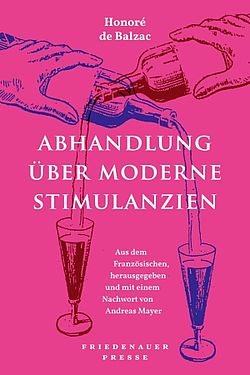
Honoré de Balzac. Abhandlung über moderne Stimulanzien
03 août 2023 Edition: Friedenauer PresseISBN: 978-3-7518-8004-6
Aus dem Frz. übersetzt, herausgegeben und mit einem Nachwort versehen von Andreas Mayer
Balzacs Exzesse mit Kaffee bei der nächtlichen Schreibarbeit an seiner monumentalen Menschlichen Komödie sind legendär. Weniger bekannt ist, dass dieser berühmteste Kaffeetrinker der europäischen Literatur 1839 eine Abhandlung über moderne Stimulanzien veröffentlicht hat, die als eine allgemeine Physiologie der Exzesse mit den Genussmitteln und Drogen der westlichen Zivilisation angelegt ist. Balzac sucht hier das Umschlagen von Lust in Qual zu fassen, angesichts der fatalen Spiralbewegung, die den Menschen vom bewussten Akt des Genießens zur willenlosen Hingabe an die Sucht treibt. Dabei testet der Schriftsteller seine vielfach bis heute gültigen Grundaxiome auch anhand einer Reihe von Selbstexperimenten mit Wein, Kaffee und Tabak. Doch Balzac ist sich bewusst, dass sich die Folgen des Konsums nicht auf die Person beschränken. Denn auch die Geschicke eines ganzen Volkes hängen offenbar von seiner Ernährungsweise ab – so mag Russland eine durch den Alkohol aufrechterhaltene Autokratie sein, und wer weiß, ob der übermäßige Schokoladenkonsum nicht eine entscheidende Rolle beim Niedergang des spanischen Imperiums gespielt hat.
Balzacs Abhandlung über moderne Stimulanzien bietet demgegenüber einen vollkommen risikofreien Lesegenuss. Neben diesem hier erstmals separat edierten Stück der Analytischen Studien enthält der Band auch den bisher unübersetzten Text »Das Opium«, der ihn in einem faszinierenden Dialog mit dem bekennenden englischen Opiumesser Thomas De Quincey zeigt.
https://www.matthes-seitz-berlin.de/buch/abhandlung-ueber-moderne-stimulanzien.html
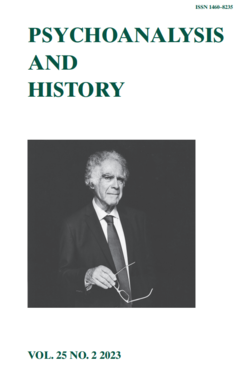
Clues, Cases, Contexts: Carlo Ginzburg and Psychoanalysis
02 août 2023 Edition: Psychoanalysis and History, Bd 25, no. 2, August 2023ISBN: Print ISSN: 1460-8235
https://www.euppublishing.com/toc/pah/25/2
This Special Section on Carlo Ginzburg and psychoanalysis presents two conversations, turning on the role of Freud. The first discussion is documented by a selection of Ginzburg’ s correspondence with the great Italian philologist and intellectual Sebastiano Timpanaro. These letters, which appear here for the first time in English translation, not only constitute an important source for the Italian reception of psychoanalysis in its relation to the emergence of microhistory, by opening a window on to the political-intellectual microcosm of the 1970s, but also allow us to reread the work of both scholars in the light of an epistemological debate crucial to our current understanding of psychoanalysis and the human sciences at large. The second conversation, drawn from a number of public and private discussions between Carlo Ginzburg and Andreas Mayer recorded in 2022 takes this epistemological debate as a starting point for a retrospective reflection on some of the major historiographical shifts that occurred within the past two decades, both in Ginzburg’ s own approach and with regard to the role Freud’ s work has played in the history of the human sciences more generally.